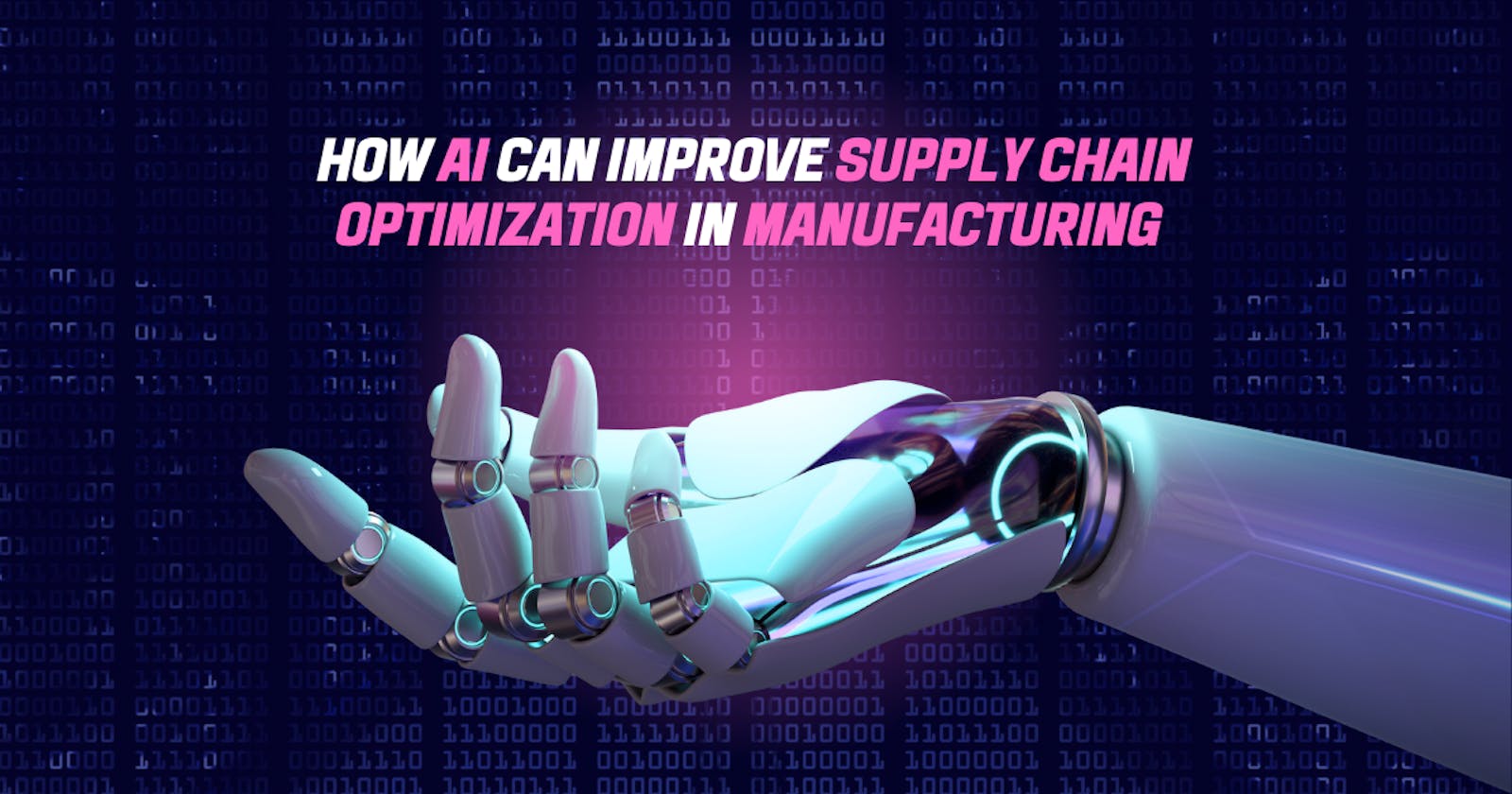AI has the potential to significantly enhance supply chain optimization in manufacturing by providing real-time insights, automation, and predictive capabilities.
Here are several ways AI can be leveraged to improve supply chain optimization:
Demand forecasting: Artificial Intelligence algorithms can analyze historical data, market trends, customer behavior, and other relevant factors to forecast demand accurately. This enables manufacturers to optimize production schedules, reduce inventory costs, and minimize stockouts or overstock situations.
Inventory management: AI can optimize inventory levels by analyzing various data points, including historical demand patterns, lead times, supplier performance, and production schedules. This helps manufacturers determine the right amount of stock to maintain at each stage of the supply chain, reducing holding costs while ensuring availability.
Supply chain visibility: AI-powered systems can provide real-time visibility into the entire supply chain, tracking inventory, shipments, and deliveries. This visibility allows manufacturers to identify bottlenecks, delays, or disruptions promptly, enabling proactive measures to minimize the impact on production and customer satisfaction.
Predictive maintenance: By analyzing sensor data from machines and equipment, AI can predict maintenance needs and prevent unexpected breakdowns. Predictive maintenance ensures optimal equipment uptime, minimizes production downtime, and reduces the costs associated with reactive repairs.
Route optimization: AI algorithms can optimize transportation routes, taking into account factors such as traffic conditions, weather, delivery deadlines, and vehicle capacity. This helps reduce transportation costs, improve delivery times, and enhance overall logistics efficiency.
Supplier management: Artificial Intelligence can analyze supplier performance data, including quality, delivery times, and pricing, to assess and select the most reliable and cost-effective suppliers. This ensures that manufacturers work with the right partners to maintain a streamlined supply chain.
Quality control: AI-powered computer vision systems can inspect products for defects or anomalies in real-time during the manufacturing process. By automating quality control, manufacturers can identify issues early, reduce waste, and improve overall product quality.
Risk management: Artificial Intelligence can analyze various risk factors, such as geopolitical events, natural disasters, market fluctuations, and supplier disruptions, to assess potential risks to the supply chain. This allows manufacturers to develop contingency plans and mitigate risks proactively.
Overall, by harnessing Artificial Intelligence technologies, manufacturers can optimize their supply chain operations, improve efficiency, reduce costs, enhance customer satisfaction, and gain a competitive edge in the market.
Here are some specific examples of how AI is being used to improve supply chain optimization in manufacturing:
GE Aviation is using AI to predict when parts will fail, so that they can be replaced before they cause a problem. This has reduced unplanned downtime by 40%.
Walmart is using AI to optimize its transportation network, which has saved the company billions of dollars.
Toyota is using AI to improve its inventory management, which has reduced costs and improved customer service.
These are just a few examples of how AI is being used to improve supply chain optimization in manufacturing. As AI technology continues to develop, we can expect to see even more innovative applications of AI in this area. Read here several use cases of AI in manufacturing industry and highlighting their benefits and potential applications.

